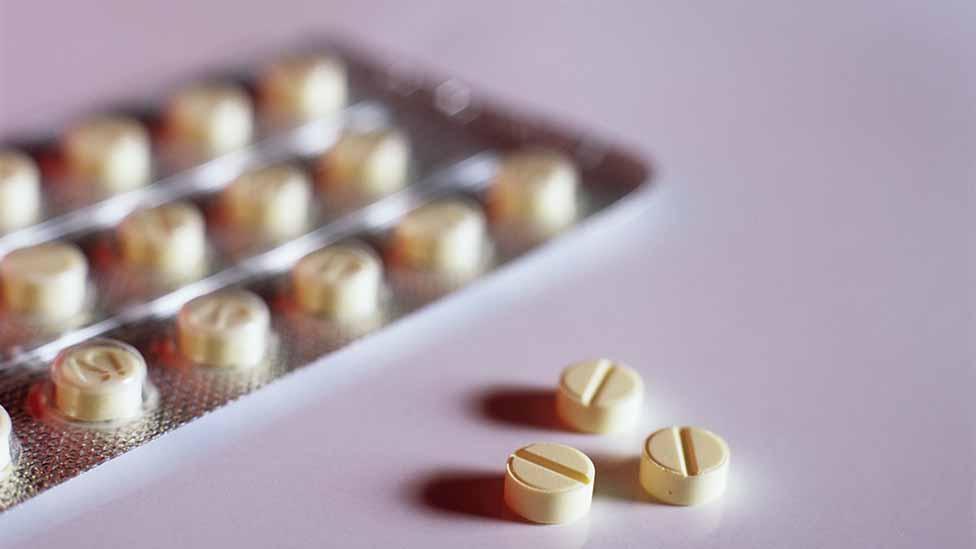Covid drugs research nurse 'terrified' of first patients
- Published
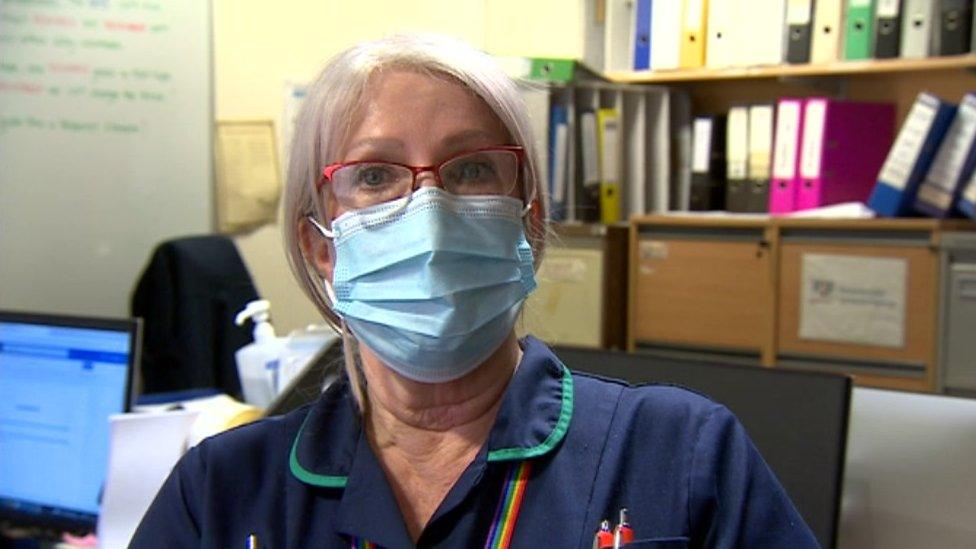
Dot Hutchinson, lead nurse at Northern Lincolnshire and Goole NHS Trust, said they simply did not know what work work to help patients at some points
A Scunthorpe nurse involved in researching early treatments for Covid said she was "terrified" when she saw her first patients with the virus.
Dot Hutchinson, lead nurse at Northern Lincolnshire and Goole NHS Trust, has worked on a number of Covid drug trials since the pandemic hit the UK in early 2020.
Speaking to the BBC on the second anniversary of the initial lockdown, she said: "I just remember shaking.
"I was scared for all my colleagues."
Ms Hutchinson is based within the medical research team at Scunthorpe General Hospital, which has recruited dozens of staff and Covid patients to trial medicines, test antibody levels and investigate the effects of long Covid.
Drone footage shows East Yorkshire and Lincolnshire at the start of the first lockdown
The nurse was involved in testing a number of treatments including malaria drug hydroxychloroquine, blood plasma - which contains antibodies to coronavirus - and dexamethasone, an anti-inflammatory steroid.
"We were out on the front line from day one," she said.
"We were in full PPE, going to see the patients getting all the information that we need to decide whether any of these new drugs were going to be applicable for them.
"We knew that this was something that needed to be done desperately quickly to try and help a lot of these patients, especially in the first wave."
The nurse said she was terrified when she met the first Covid patient and she and her team were "very nervous" from the moment they started working on the Recovery trial, external.
"I remember walking up there [in] trepidation and this lovely lady was behind glass, there was PPE, there were people scurrying about and it just felt like this is the start of [the unknown].
"I think sometimes we were scared as the patients because we didn't know.
"I wouldn't like to repeat those two years."
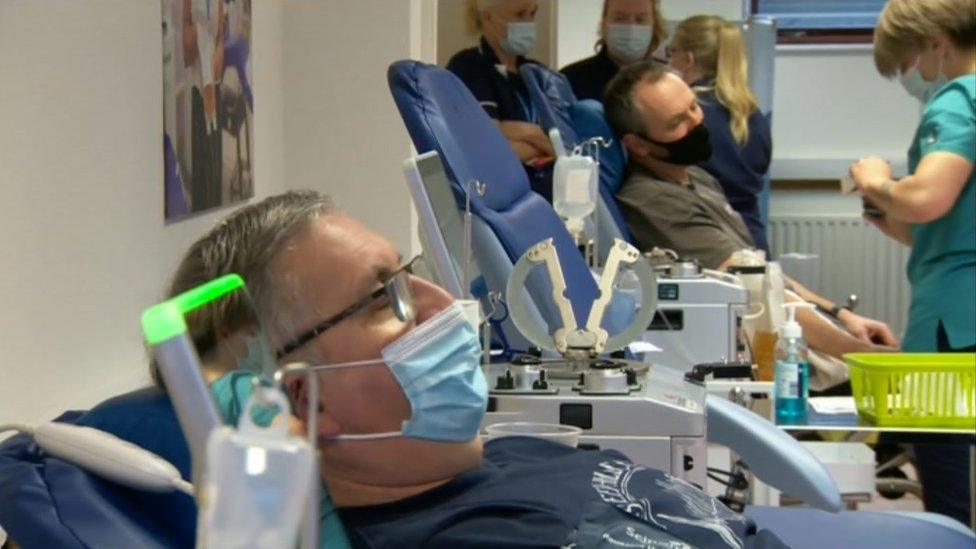
Dozens of patients and staff have been recruited for Covid treatment trials
Ms Hutchinson said her team soon found out very quickly that hydroxychloroquine, which was praised by former US President Donald Trump, "really didn't have that much of an effect" and neither did the blood plasma treatment.
"But dexamethasone, probably the cheaper of the drugs, actually made a big difference and hence that became standard practice, standard care. And that's what research is all about."
She said there were "lots and lots of highs and lows" to being a medical research nurse "but ultimately we're looking to benefit the nation".

Follow BBC East Yorkshire and Lincolnshire on Facebook, external, Twitter, external, and Instagram, external. Send your story ideas to yorkslincs.news@bbc.co.uk, external.
- Published15 March 2022
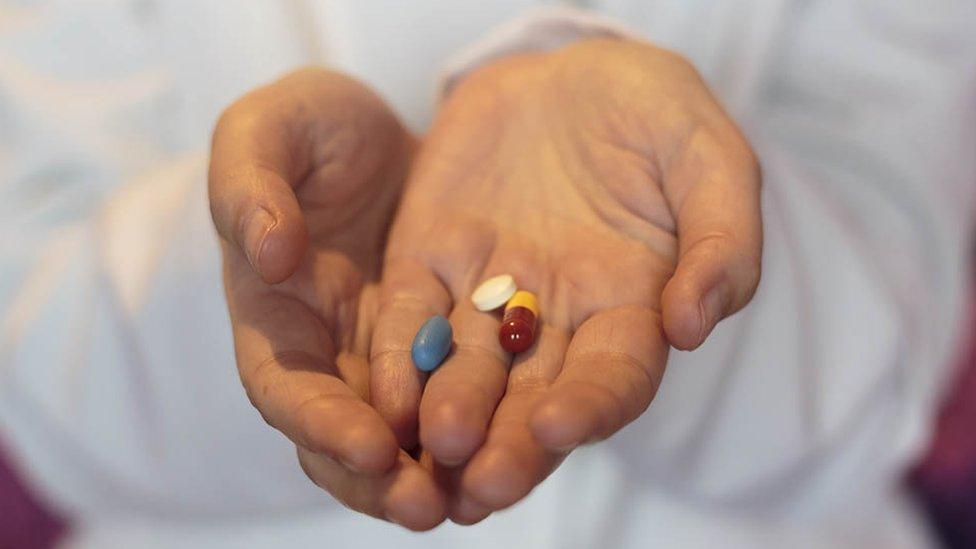
- Published16 February 2022
- Published4 February 2021
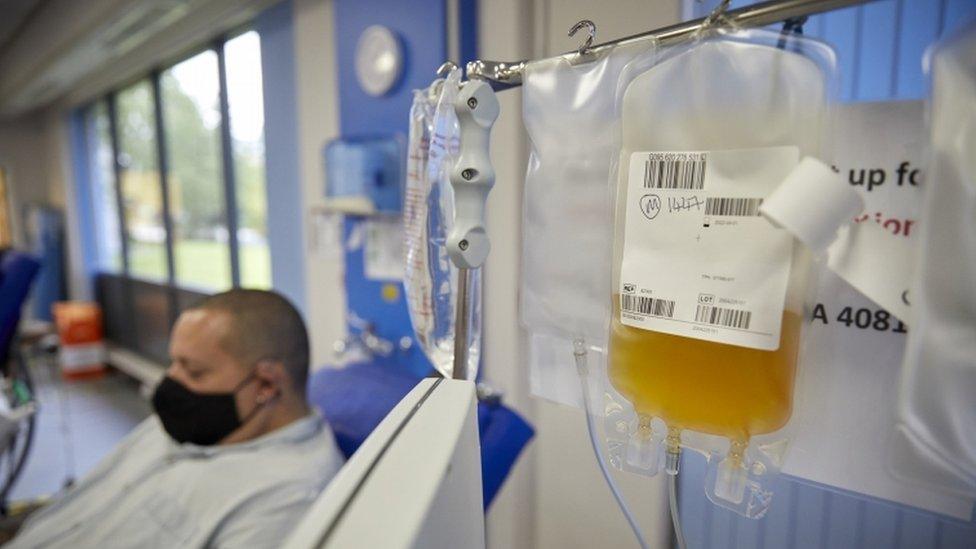
- Published18 June 2020
